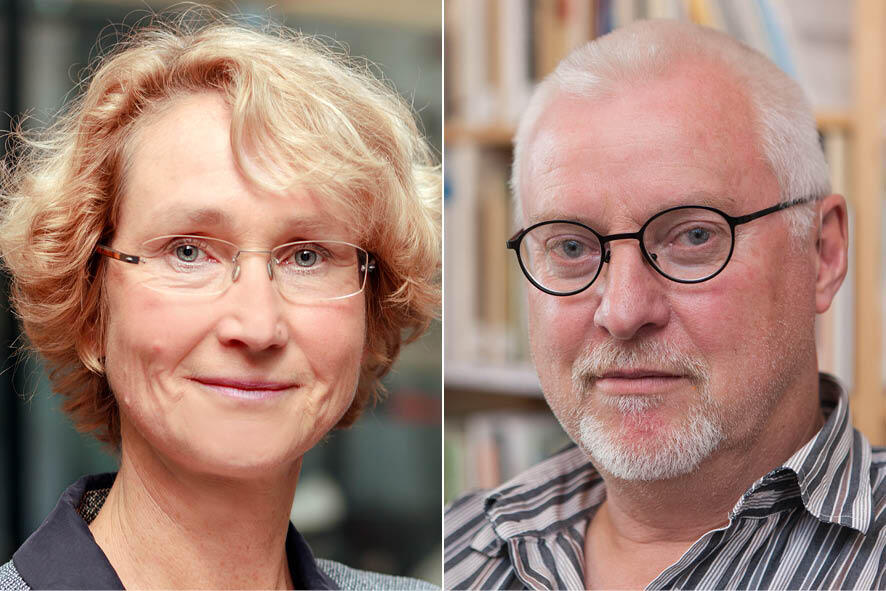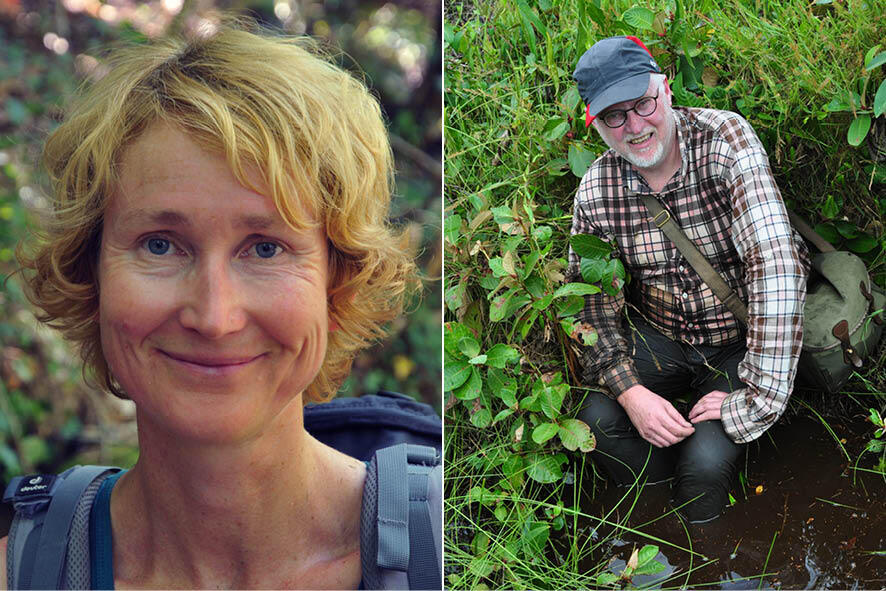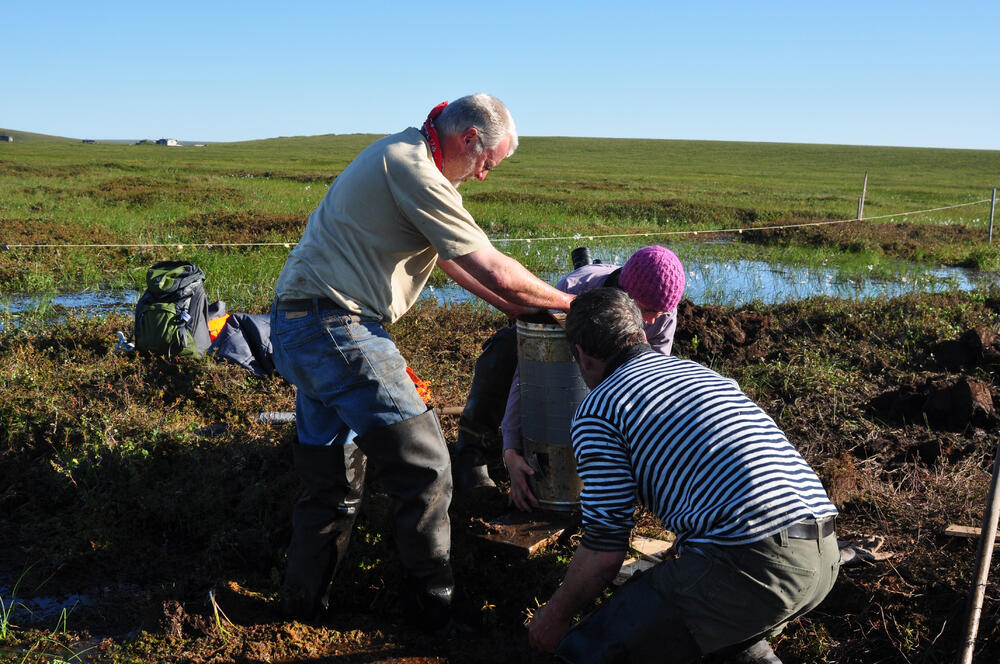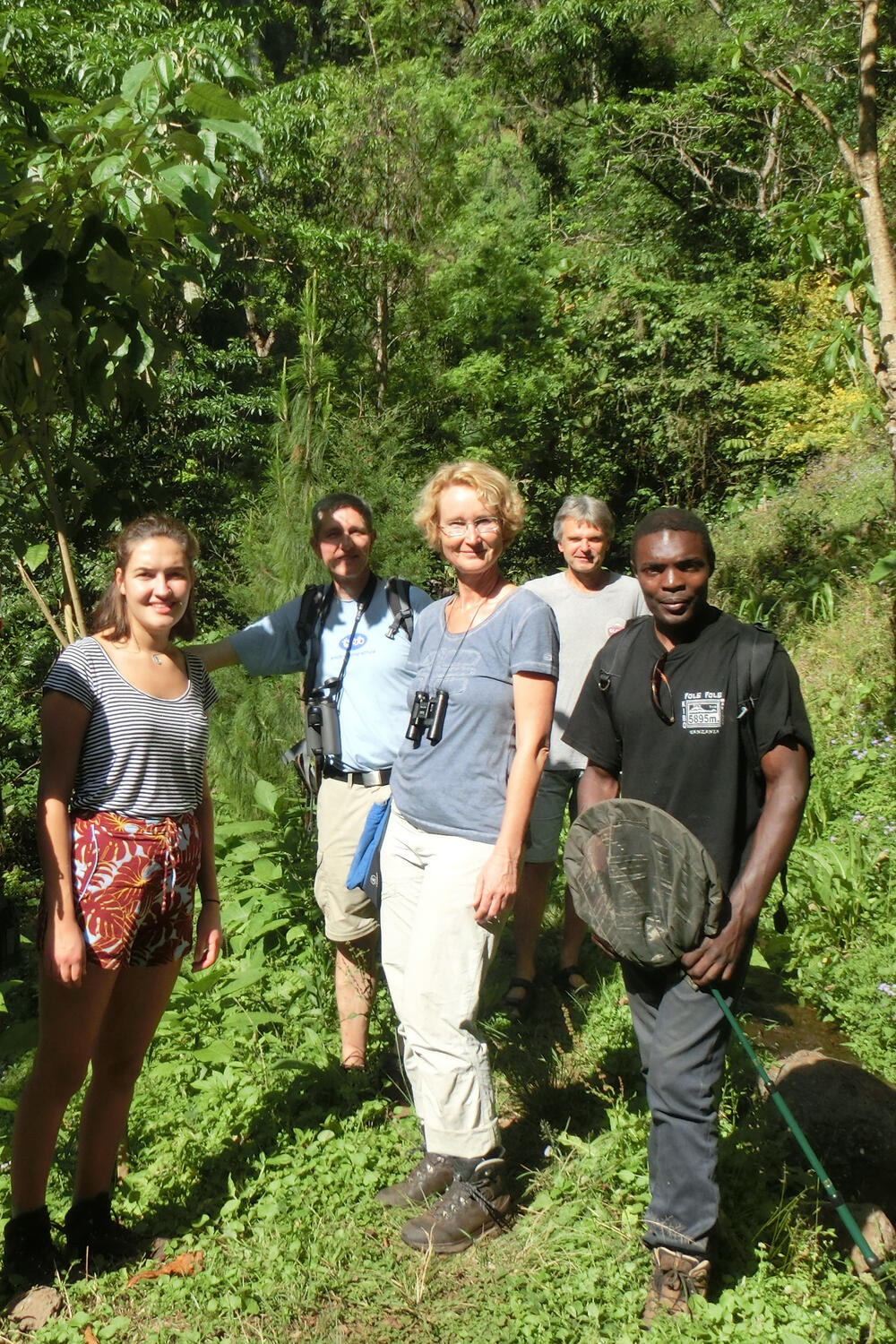DBU aktuell No. 7 | 2021 English
Information on Grant Support Activities of the German Federal Environmental Foundation (Deutsche Bundesstiftung Umwelt)
1.) German Environmental Award 2021 for biodiversity researcher and moorland scientist
The German Federal Foundation for the Environment (DBU) is awarding this year's German Environmental Prize to two internationally renowned individuals who have achieved outstanding results in their scientific disciplines for greater species, climate and environmental protection: Prof. Dr. Katrin Böhning-Gaese for her cutting-edge research on the importance of biodiversity for the planet and humans, and Prof. Dr. Dr. h. c. Hans Joosten for his decades of scientific work on moors as habitats relevant to climate protection and the serious consequences of moorland drainage for global warming. The DBU's German Environmental Award will be presented by German President Frank-Walter Steinmeier on October 10 in Darmstadt. With a total of 500,000 euros, it is one of the most highly endowed environmental prizes in Europe.
An international name made with macroecology
Biodiversity researcher Böhning-Gaese has made an "enormous scientific contribution to helping us understand the dramatic consequences of species loss for humans and the planet as a whole," said DBU Secretary General Alexander Bonde. According to Bonde, the biodiversity researcher, who was born in Oberkochen in Baden-Württemberg, has made an outstanding international name for herself in the field of macroecology in particular: using the methods of this modern field of research, she examines ecological relationships not only locally and regionally, but also continentally and globally, as well as on different time scales. According to Bonde, the researcher's goal is, on the one hand, to investigate the highly complex consequences of climate and land use change for biodiversity and animal and plant communities. On the other hand, the director of the Senckenberg Biodiversity and Climate Research Center and professor at Frankfurt's Goethe University strives to predict the effects of environmental changes on ecosystems in the coming decades as accurately as possible. Methodologically, she also works in an "impressively diverse" and interdisciplinary manner, bringing together natural science disciplines with economic, political and sustainability science fields and thereby gaining new insights into the interactions between humans and ecosystems.
Fight against species decline a social challenge
Ms. Böhning-Gaese's work also makes it clear that the fight against species decline is a major social challenge "that we must tackle courageously," Bonde added. According to Bonde, Böhning-Gaese is "exemplary and highly committed" to contributing her scientific findings to social and political decision-making processes. She succeeds in this in her role as vice president of the Leibniz Association and also as a member of various scientific societies and committees, such as the Senate Commission on Fundamental Questions of Biological Diversity of the German Research Foundation (DFG), the Academy of Sciences and Literature Mainz and the National Academy of Sciences Leopoldina.
At the Senckenberg Society for Nature Research, Böhning-Gaese also heads the "Science & Society" program, which promotes exchange between science and social stakeholders. "Through the academy statement on biodiversity and management of agricultural landscapes, which she coordinated, she was instrumental in laying the foundations for the recommendations of the Commission on the Future of Agriculture for an agricultural turnaround in Germany," Bonde said. For the designated prizewinner, the findings suggest one conclusion above all: "Particularly with regard to the decline of species in agricultural landscapes, we see that we all have to act. Of course, agriculture is challenged here. We need a greening of agriculture. But politics is just as challenged, with its subsidy policy, the economy, trade and we also - each and every one of us - in our consumption and nutritional behavior. Protecting biodiversity is a task for society as a whole. Everyone has a part to play here," says the 56-year-old.
Moors indispensable in overcoming the climate crisis
Groundbreaking findings are also due to moor researcher Joosten, said DBU Secretary General Bonde. He called Joosten's work "highly valuable." "With tireless commitment, he has raised awareness in the first place that peatlands are indispensable allies in overcoming the climate crisis," Bonde said. He said the German Environmental Award recognizes "how beautiful and how important peatlands are for climate protection because they store twice as much carbon in their peatlands on three percent of the Earth's land area as all the world's forests store in their biomass on about 30 percent of the land area." Rewetting and habitat restoration are the order of the day and a crucial key to sequestering carbon dioxide (CO2) naturally, Bonde said.
Paludiculture for climate-friendly agricultural use of peatlands
The peatland scientist was born in Liessel, the Netherlands, in 1955 and researched and taught at the Institute of Botany and Landscape Ecology at the University of Greifswald until his retirement, which has just begun. He had also shaped the term "paludiculture" ("palus" - Latin for "swamp, morass"), a description now used worldwide in expert circles for climate-friendly agricultural use of wet raised bogs and fens. That means the biomass is used - "but in such a way that the moors are not drained, no CO2 and nitrous oxide escape, and the moor surface does not sink further downward," Joosten said. In the future, a farmer could "also plant cane reeds, cattails, sundews or sphagnum moss," the environmental award winner said. Cattails, for example, serve as insulation and construction material, while sphagnum moss could revolutionize landscaping.
In more than 600 scientific publications, including standard works, and on many research trips to the world's peatlands - from Alaska to the Congo to North Korea - the designated Environment Prize winner has pointed out all these connections and made new discoveries. Joosten plans to use the prize money to expand the "PeNCIL" peatland library, which is based at the Greifswald Moor Centrum (GMC) and is the world's largest peatland library with around 25,000 publications, into a global knowledge and cultural center on peatlands. Founded in 2015, the facility is a cooperation between the University of Greifswald, the Michael Succow Foundation and the "Duene" association. The goal of the center is what Joosten has championed throughout his life as a researcher and why he is now being honored by the DBU: to protect natural peatlands from drainage, to re-wet degraded - i.e. drained - peatlands, and to simply use them wet. He describes his lifelong mission succinctly: "Moor must be wet!"
Further information on this year's ceremony and on the award winner can now be found in our new blog on the German Environmental Award at: www.dbu.de/umweltpreis-blog.
Press releases, photos and sound bites about the Environmental Award 2021 can be found in our press release.
Translated with www.DeepL.com/Translator (free version)





